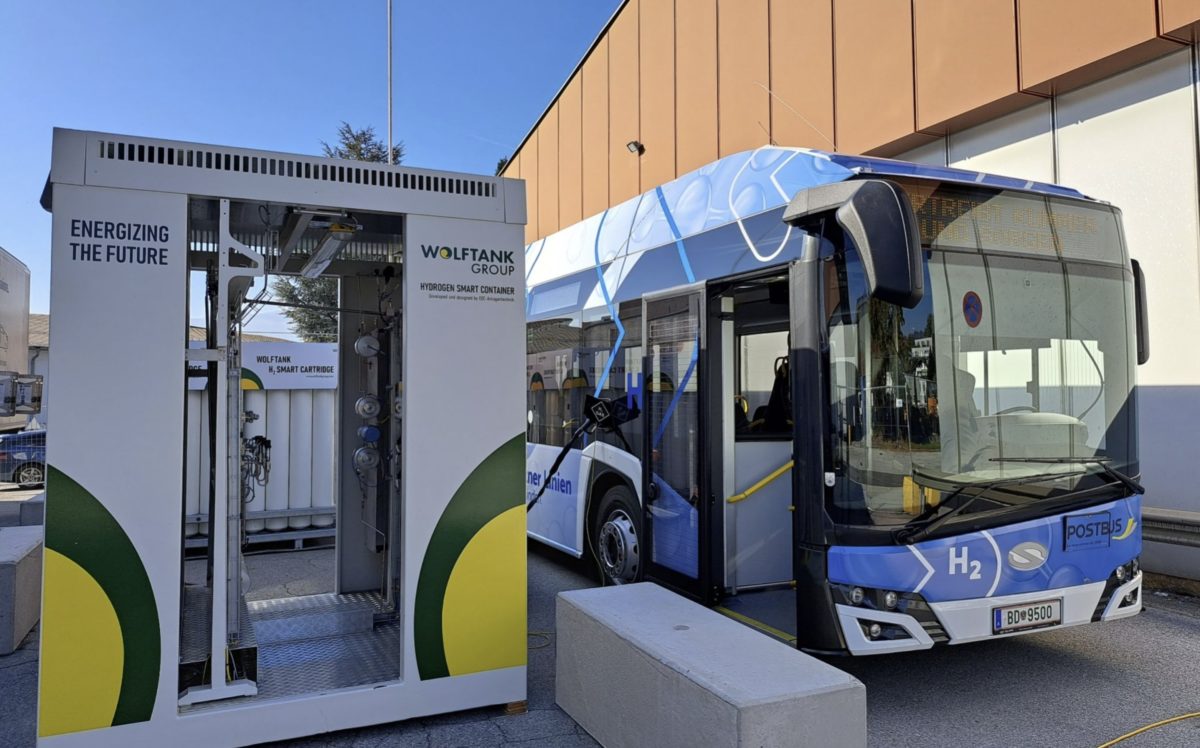UK-based Enermech and Austria-based Wolftank Group have signed a distribution agreement to bring hydrogen refuelling stations (HRS) to Australia and New Zealand’s industrial sectors.
With industry looking to cut fossil fuel dependence, one of the most obvious avenues for carbon emissions reduction is the transition of transport fleets to net zero emissions vehicles such as electric vehicles or hydrogen-powered vehicles.
While battery electric vehicles (BEVs) are likely to dominate short-haul freight, long-haul freight is increasingly looking to hydrogen-powered solutions. This preference can be largely put down to the faster refuelling methods of hydrogen and the reduced range anxiety. What is more, the lighter weight compared to BEVs mean an increased payload capacity.
Wolftank’s mobile HRS systems are ideally suited to remote locations such as mine sites and industrial sites where hydrogen refuelling options would otherwise be limited. According to the company its technology allows hydrogen-powered vehicles to be fast-refilled on par with traditional fossil-fuel powered vehicles.
Enermech will supply, install, commission and maintain Wolftank’s HRS systems in both Australia and New Zealand. Enermech’s Asia Pacific Regional Director Garry Ford noted that “hydrogen produces no carbon emissions providing flexible, storable and safe alternative for companies operating in transport intense sectors such as mining and heavy haulage, where operations are often based in outlying places. However, one of the main challenges is the lack of refuelling infrastructure in these remote areas to make it a viable solution.”
For this reason, Ford describes Wolftank’s HRS as a “game changer.”
Wolftank’s multimodal H2 supply solutions for various types of transport can be serviced by its prefabricated HRS for heavy (350 bar) and passenger (700 bar) vehicles.
According to analysts at McKinsey, by 2035 as many as 850,000 hydrogen-fuelled medium- and heavy-duty trucks could be in the road in Europe alone. Those vehicles would consume 6,900 metric kilotons of hydrogen annually and require up to 4,800 HRS. McKinsey asserts that a medium-size HRS with a daily capacity of 500 kg “could reach break-even prices at 55% utilisation, depending on the hydrogen sourcing costs and sales.
This content is protected by copyright and may not be reused. If you want to cooperate with us and would like to reuse some of our content, please contact: editors@pv-magazine.com.









By submitting this form you agree to pv magazine using your data for the purposes of publishing your comment.
Your personal data will only be disclosed or otherwise transmitted to third parties for the purposes of spam filtering or if this is necessary for technical maintenance of the website. Any other transfer to third parties will not take place unless this is justified on the basis of applicable data protection regulations or if pv magazine is legally obliged to do so.
You may revoke this consent at any time with effect for the future, in which case your personal data will be deleted immediately. Otherwise, your data will be deleted if pv magazine has processed your request or the purpose of data storage is fulfilled.
Further information on data privacy can be found in our Data Protection Policy.